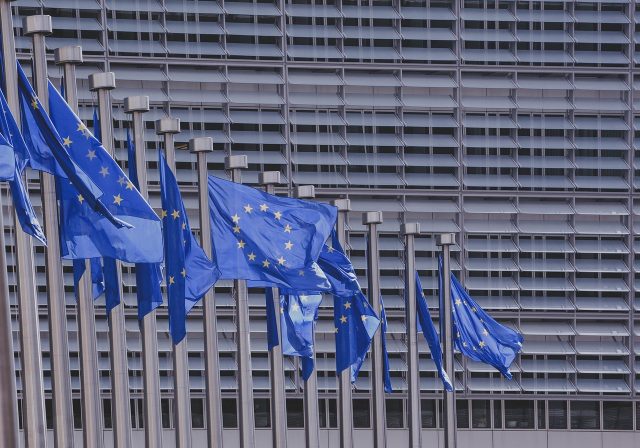
In the next four years, the European Union will be led by a new executive under the presidency of Ursula von der Leyen, but the recent appointments of Commissioners clearly reveal the contradictions and challenges that Europe must face. In this context, the figure of Raffaele Fitto stands out as a beacon of hope and competence, having been appointed Executive Vice President of the European Parliament—a significant achievement for Prime Minister Giorgia Meloni and the Italian right.
A Union in crisis
Unfortunately, the European appointments paint a concerning picture. The position of High Representative for Foreign Affairs has been assigned to Kaja Kallas, the Estonian Prime Minister, whose experience is limited to governing a country with just 1.3 million inhabitants. Her “hawkish” stance toward Moscow does not promise a balanced management of delicate international relations, especially given the context of the Russian-Ukrainian conflict. This choice risks undermining the credibility of Europe on the global stage.
The appointment of Stéphane Séjourné as Vice President with a mandate for industrial strategies offers little assurance of competence. He is more known for his personal life than for his political skills. Moreover, the defense sector continues to be a sore point for the Union, with Andrius Kubilius, a former Lithuanian Prime Minister with no experience in defense, tasked with solving long-standing problems.
Even the agricultural sector, crucial for the European economy, has been entrusted to Christophe Hansen, a politician from Luxembourg, where agriculture contributes only 0.4% to GDP. This sharply contrasts with Poland, the leading food producer in Europe, which will manage the delicate European budget through Commissioner Piotr Serafin.
Raffaele Fitto: A Leader of Experience
In this confusing landscape, the figure of Raffaele Fitto emerges as a symbol of hope and competence. His appointment as Executive Vice President of the European Parliament marks a milestone for Italy and for the Meloni government. Fitto is not a newcomer to politics; he is a seasoned politician with a solid career. He has served as the President of the Puglia Region, demonstrating effective governance and a clear vision for local development. His political history is characterized by a strong commitment to both regional and national issues, making him an effective representative of Italian interests in Europe.
Fitto’s nomination represents not only a recognition of his capabilities but also a rebuttal to the negative forecasts put forth by the Italian left. Many had predicted an isolated Italy within the Union, incapable of influencing European decisions. On the contrary, Meloni’s leadership and political strategy are leading Italy to occupy prominent positions in the European arena.
Fitto’s Crucial Role
Fitto’s mandate, which includes fundamental responsibilities such as Cohesion and Reforms, presents an invaluable opportunity for Italy. With over €378 billion available for the 2021-2027 period, his role in managing these funds will be critical for promoting investment and development in the South and throughout the country. This new role does not only imply economic influence but also the capacity to chart a clear path for the future of the Union.
Fitto will also oversee the implementation of the National Recovery and Resilience Plans (Pnrr), a vital aspect to ensure that Italy can make the most of the opportunities offered by the Next Generation EU. Unlike his predecessor, Paolo Gentiloni, Fitto will not face strict oversight, allowing him greater freedom and decisiveness in his actions.
A contrast with leftist criticism
The Italian left has sought to undermine Fitto’s appointment, labeling it as “isolationist” and reducing Italy to a secondary role. However, Fitto’s election demonstrates that the right can be an authoritative and democratic governing force capable of achieving recognition and tangible results. The left’s rhetoric, which has often focused on personal attacks and unfounded criticisms, has failed to account for the evolving political reality and the growing influence of Meloni in Europe.
Fitto’s nomination has also shed light on the inadequacy of pessimistic predictions. Many commentators had foreseen that Italy would remain marginal in the European landscape, but the reality is quite different. Fitto has already shown his ability to collaborate with other European leaders, and his pragmatic approach could foster greater cohesion among member states.
At a time when the European Union faces unprecedented challenges, Raffaele Fitto’s appointment represents an opportunity to reaffirm Italy’s importance in the European context. Under Prime Minister Meloni’s leadership, Italy is not only establishing itself as an influential power but is also proving that a governing right can be a constructive and dynamic force.
The future for Fitto and the Meloni government is still unwritten, but the prospects are promising. The European Union needs capable leaders and clear visions, and Fitto’s presence in the European Parliament could signal the beginning of a new course for Italy and for Europe as a whole. With Fitto’s competence and determination, there are all the conditions for Italy to become not just a participant but an active protagonist in the European decision-making process.



 Subscribe
Subscribe